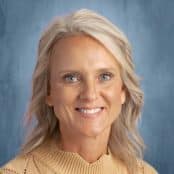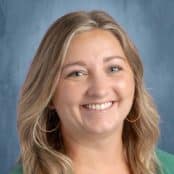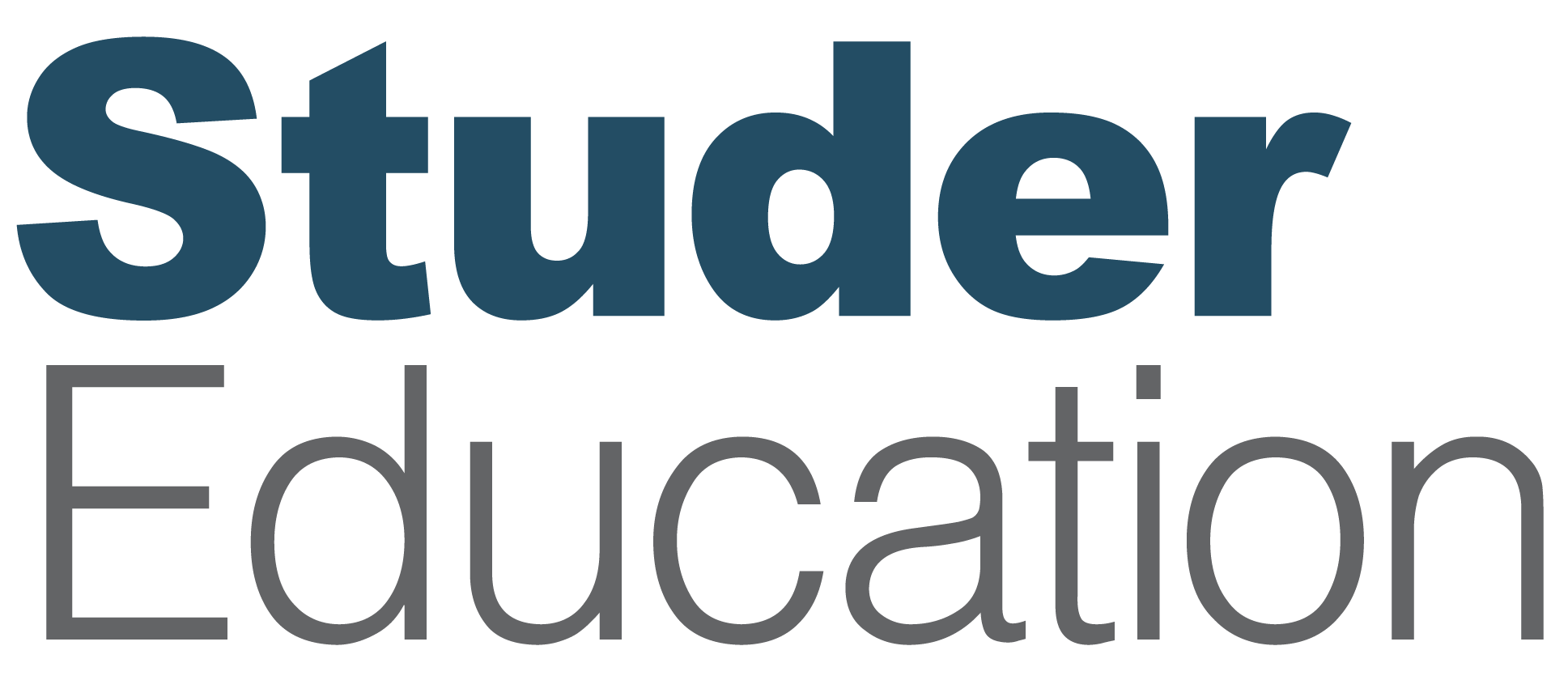
Principal Jeannie Clark and second-grade teacher Ms. Laressa Finney share how Francis Case Elementary is taking gratitude to the next level. Listen as they join Dr. Janet Pilcher to explore the impact of recognition and appreciation on school culture, relationships, and morale. Learn how small, intentional gestures create powerful ripple effects that benefit students, parents, and the entire school community.
This episode addresses questions such as:
- What role does recognition play in retaining employees and creating a positive work environment?
- How can leaders effectively build relationships with their staff and stay focused on positive aspects within their organization?
- How does attending a school with a strong culture of gratitude positively affect students?
DHP K12 Leadership Conference
Our Destination High Performance (DHP) events honor the transformative leaders shaping the future of education. These events highlight how leaders drive continuous improvement, spark innovation, and elevate education through ongoing leadership development and an unwavering commitment to excellence.
Latest Episodes
Jeannie Clark: Everybody wants to be seen. They want to be appreciated. They want to be valued.
[Intro music plays in the background.]
Introduction
Janet Pilcher: Hello everyone. Welcome to the Accelerate Your Performance podcast. I’m your host, Dr. Janet Pilcher, founder and president of Studer Education.
I have a very special episode for you today. The story you’re going to hear is one you’ll also get to read about in my upcoming book written with Quint Studer, The Extraordinary Gift, available for purchase in August. It’s a collection of powerful story about educators who’ve made a profound difference in people’s lives. Quint and I wrote this book as a way to show appreciation to the teachers who have shaped us. We’re excited for you to read it and pass it on to a teacher in your life who makes a positive impact.
I’m joined today by principal Jeannie Clark and second grade teacher, Ms. Laressa Finney from Francis Case Elementary. They’re located in Douglas School District of Box Elder, South Dakota. In fact, we heard from their superintendent, Kevin Case, and he gave us a preview of their district-wide focus on gratitude and recognition. If you missed that episode, check out the show notes for a link.
In today’s episode, we’ll leave you with a clear understanding of just how powerful it is to build a positive culture by truly recognizing employees, students, and families. So let’s get started today.
Interview
Janet Pilcher: So Jeannie, I’ll start with you. Just, if you would, a little bit about you and your background and what drew you to teaching now that you’re a leader, but what drew you into the profession?
Jeannie Clark: So when I was reflecting on this question, I thought, like, drew me into teaching and I thought to myself, I’m like, I don’t think I ever pictured myself doing anything else, right? I was just one of those people that I knew it from a really young age, and I know that sounds so cliche, but I never considered anything else.
And then quite honestly, I had a nephew who was born pretty severely handicapped. And so I always thought that I was going to be a special education teacher. I really truly did. And then my first opportunity was in a second grade classroom and I fell in love with that. And then from there, I kind of moved into, when I was getting my admin degree, and I moved into a dean of students position and never really thought I wanted to be a leader quite honestly. It was my principal who really said to me, “”I really see leadership qualities in you.” And I kind of laughed at her. I was like, “well, I don’t really see it in myself, but okay.” And she said, “you just go for leadership and you’ll open so many doors.” And so that’s really what kind of got me into the leadership piece was really her seeing something in me that I really didn’t see in myself.
And now I’m on year 20 of being a principal, and all at Francis, I’ve been at Francis Case for 20 years. So that’s kind of been my journey. And yeah, if you would have told me at the age of 31, 30, 30, I think I was when I started at Francis Case as a principal, that I would be doing this, I probably would have kind of laughed. But here I am. And I love every minute of it. And I love the dual roles of still being able to be with kids, but yet be with adults too and lead some of that work. And so yeah.
Janet Pilcher: Yeah, it’s so good. I think back, I started in a young age as a leader as well, but Jeannie, it’s just that story. You don’t like say, “oh, I aspire to be that somebody else.” I think you’d be good at this or do you know, move into this. You know, that’s, that’s how we move into leadership. I think many of us, so they recognize something great in you. So I mean, congratulations on being there and the success that you’ve had. When people are in, move up in the district. Sometimes I hear them say there’s nothing better than the leadership of a principal. That’s like the best job in the world.
Jeannie Clark: Yeah. Yeah.
Janet Pilcher: So Laressa, tell me a little bit about you, your background and what drew you to teaching.
Laressa Finney: So this is my 10th year teaching at Francis Case, too, and I’ve been there my whole entire career. I think that kind of just shows to attest you, like, how great Douglas School District is. All second grade, like I said, and all under Jeannie’s leadership, which has been just a remarkable journey.
What kind of drew me into teaching was throughout high school, as soon as I started when I was 15, I started working at a daycare. And it was in a toddler room, and I just loved working with kids. Like I loved every aspect of it. I loved how, like, they needed you, but you also could do, like, fun crafts and things with them. And so that kind of really, like, inspired me and wanted me to look at something into the line of, like, education. And then my mom also is a preschool teacher. So obviously she has had her with being able to bounce ideas off with one another and share just the connections that we have with education is always something that’s really special.
So I think kind of it’s been a mix of things, but same thing I’ve always really enjoyed working with children, so I knew it was kind of just something that I loved and wanted to do. I also was one of those kids too that loved when school started back up and you got your school supplies and your backpack, and I do that every single summer. I get excited about my planner and my new pens and all of those things and the new group of kiddos that I’m going to get. And so I think it’s something that, when you really want to work with kids, you see it from a very early, early age.
Janet Pilcher: Yeah, so good. Yeah. And there that is the beginning of the year. There’s nothing like that feeling of that excitement. There’s nothing like that feeling truly, you know. So thank you for being a teacher. Your kids are lucky to have you.
So let’s talk a little bit about your recognition program. The newspaper talk called it the thank you note program, which was kind of cute. But Jeannie, talk a little bit about how the program works and impacted the culture of your school.
Jeannie Clark: So we just, we really just started it this school year. So, you know, we’ve been, I guess, I thought. Ee came to Denver, the superintendent, I and another principal. And when we left there, and we had kind of started a little bit of it amongst the administrators before that. But when I came there and I went to some of the various sessions, it was like, “Oh my gosh, we have to do this, right.”
And so I just think at the beginning of the year, one of the things we really talked about, so it fit in beautifully is, we just talked about gratitude. And what, so part of my opening inservice was actually about gratitude, and about how when we start looking for the good, and we, we can find good, you know, and that we really have a lot of things to be grateful for. And so when I heard about the reward and recognize, and I started reading the chapter in the book and all of that, I was like, “Oh my gosh, this fits right in with what we’ve been doing as far as gratitude.”
And so I honestly now can say, I think it’s really become a meaningful part of our culture. Even yesterday, we had our last PLC together as grade level teams. And one of the things we did was just started the PLC with “write a note to someone who, you know, you know, might need a push to help get to the finish line. You know, they might just need that extra just pick-me-up.” And so just even little tiny things like that.
And so, you know, throughout the year, we’ve just been encouraging staff members to really recognize each other by writing those personal thank you notes. You know, we’ve talked a lot too about emails are nice, but there’s something about that personal handwritten note that just, I think takes it to another level. And it’s just so small, but it’s so big.
And I don’t know if I realized the impact of the program until, or what we’re doing until like the newspaper came, and he interviewed a couple of the teachers. And just hearing Laressa talk and he interviewed another one of my teachers, Brandy, who is one of Laressa’s teammates, and just talking about how significant it has been to them, I think, was eye opening to me too of just–it’s fostered that culture of gratitude, maybe some additional mutual respect amongst teammates.
I really truly think it’s even strengthened some of the relationships among our staff and just creating that more uplifting work environment. I think sometimes we think that things have to be big. And really these small gestures of appreciation have just made a huge difference in our morale. And I think the small things of just reminding every single person that we work with, I mean, teachers are writing them to our parents, we’re writing them to custodians, we’re writing them to office staff, lunchroom people, you know, and that reminding everyone that their efforts are seen and valued.
Janet Pilcher: Oh my gosh, it’s so good. I mean, just the, and I love what you said, you’re right, there’s nothing more valuable than a handwritten thank you. We have them in our drawers. [laughs]
Laressa, yeah, talk a little bit about what it means to you, you know, can you give an example of a note that you received, what it meant to you?
Laressa Finney: I think what Jeanie said is like, as educators, we’re always striving to do better and be better, whether that’s for our students or for our teammates or for our colleagues, any of those types of things. And I think when, like, I personally receive a note, it can help with driving my instruction if it’s coming from Jeanie or from my instructional leader. I’ve received plenty, like, where it’s talking about my engagement or what they really liked that I did during this math lesson, or so forth, and that can help drive my instruction with what I’m wanting to do or what they saw within my classroom.
If it’s coming from someone as, like, on my team, like, I think that, like, she said, it helps with boosting morale, and it helps with really forming those connections, which is really important to make sure that students are successful. You have to be on the same page and you have to be able to trust your team and to be able to make those connections. And I think that that’s important when you can do that by writing a recognition card.
I also think that it slowly started to, like, trickle into just all areas of the school, like she was saying. One that, like, really touched me this year was I received one from our school psychologist, which I only work with her obviously a handful of times. And so this year she came in to evaluate one of our kiddos that was up for an IEP re-eval. And after she came in for like that 15 minute eval where she was watching this kiddo, the next day she filled out a huge Patriot Proud card and, like, sent it to me and it was about so many different things.
She recognized me about my lesson, but also, like, how my students were engaged and how I was connecting it to the real life. And, and that for me, I was just like, “whoa, like I see you maybe like three times a year and you’re writing a huge card for me.” And I, it really significantly impacted just how I felt about myself. And it made me be like, “wow, like I’m doing something great and someone’s recognizing that.” And I think that that’s important. And I think that it’s just awesome that it’s slowly starting to, like I said, trickle into just different areas, and you’re hearing from people that you might not hear all the time from.
Janet Pilcher: Yeah, so good. And you know, and it builds that relationship with her is, the school psychologist, right? I mean, it’s, you know, think about the difference. That, that note compared to just walking out and then coming back without that. I mean, you have, it’s a whole different perspective that you have with that relationship. So good. So talk a little bit, Jeanie, about the impact it’s had on your teachers and on you.
Jeannie Clark: So again, I think it just goes back to I really think it’s made a notable, like, a noticeable difference with our teachers. I feel like we’re more connected. We’re more supportive of one another. I truthfully believe that that has helped some of that.
Again, it goes back to, and I and I told the newspaper reported this, too, everybody wants to be seen. They want to be appreciated. They want to be valued. And it keeps people at workplaces. If you work somewhere where you don’t feel appreciated, you don’t feel valued. I think people leave those organizations. And so, and that’s not just teaching; that’s any organization. And so I feel like this has done that for teachers. And we’re not just recognizing the big accomplishments, but every day things that they do.
One of the things that we’ve done over the last year, we really did a lot of the work last year is just setting our vision for Francis Case. And like, if we envisioned ourselves in five years, who would we want to be? And we did that work as a team. And then from that, we really wrote what we call our collective commitments and what we all agreed to to make Francis Case what we want it to be.
And so one of the things we’ve really worked on this year with our thank you notes is not just a vague thank you note, but really connecting it. And, and we gave them samples in the beginning of, like, really giving people specifics.
And so we’ve talked about, like, what are what are people doing to advance our collective commitments or to live by our collective commitments, what we agree to? And so, a lot of the thank you notes, you’ll see, are written around that. Like, you know, they’ll talk about what I saw you do is really connecting to this collective commitment and helping us be who we want to be and that kind of thing. And so just the specificness of the notes, too, I think it’s just like, staff see what they’re doing that’s making a difference. And I think we all know just receiving these are, especially during stressful times, mean a lot to people.
I also think it’s helped us to notice one another more maybe. You know, you can go through your day to day and you don’t really notice your teammates or notice the people you work with and I think they’ve really helped us tune into each other and notice each other. And so that has been really special, too, I feel like, and it’s just helping to build that culture of who we want to be, too.
For me personally, I just think I’m a very relationship based leader anyway. And so I believe that teachers are just like kids. They don’t want to work for somebody they don’t really like. They don’t want to work for someone that doesn’t care about them as an individual. And it’s just been who I’ve been since the day I started being a leader. And I knew it was who I wanted to be as a leader is just to really have those relationships with staff, know who my staff are, know what’s important to them. And so for me personally, this program has just fit right in with who I am as a leader.
And I also think for me, it’s just been even like people like Laressa that I’ve worked with for 10 years, I think just taking the time to write notes of appreciation. And next year I have a goal to even get more done, right? So, but just deepens my relationships with staff too, and really also has helped me just to stay focused on the positive things that really, truly are happening in our building.
I think sometimes in education, we can see the negative because it’s always going to be there. But I think when I look at each and every school day, there is something good in every single one, and there are good things happening in every single one. And so for me, I think it’s just helped me to really focus on that on a day by day basis. And, and just a reminder that leadership is just as much about listening and recognizing as it is about that guiding and supporting and coaching and all of those things.
And so, it’s just been super powerful. I get a little emotional when I think about it because I just, it’s such a small thing. And I always think of it like a little ripple, right? It’s just a little ripple in a pond that has just made huge impact as it ripples out to other people.
Janet Pilcher: I love it, Jeannie. And, you know, the things are going right. You’re, bright spot all the time. Recognizing people like that make you look for those intentionally because you’re looking for ways you can recognize. So, yeah, so, so good. And just the way that you can build those relationships through that process.
So, Laressa, talk a little bit about what it means. You know, difference it’s made for you as a teacher, as a person, you know, what you’ve learned from it.
Laressa Finney: Like, as Jeannie said, some of the notes that I wrote down was that we all want to be recognized. And it does create that sense of you do feel needed. You do feel valued. And that’s something that always has, like, pushed me. I’ve always said to Jeannie, like, give me feedback. Like, tell me what I’m doing good. Tell me what I’m doing, something that I need to fix or I need to change or switch. And so that’s something that has always been important to me.
But I also think in the field of education, we have to celebrate each other’s successes because on a team, if we don’t recognize that other people bring different things to the table, and we don’t have that like collective efficacy where we are working together and we are celebrating each other’s successes, what are we really doing for our students? And so I think that’s important.
And, too, with all of those recognition cards that I get or the Patriot Proud cards that I get from other people, I post them up next to my teacher desk and it slowly does start to create a ripple effect, and my students see them and they want to write them too, which is amazing to see. And so and that might be something that they write to a peer in their class about thanking them for playing on the playground is something as simple as that or really truly helping them on a problem. I had a student write a card to one of our little girls about helping him when he got stuck on a math problem. And that is important.
Janet Pilcher: Oh my gosh. That touches your heart.
Laressa Finney: Oh yeah, absolutely.
Janet Pilcher: I mean, that’s powerful. And it’s all the modeling that they see, right? They see the adult modeling and then they see the value of that so good. And you’re not having to make them do it. They’re just wanting to.
Laressa Finney: Yeah. It’s in other grade levels too because one of my cards is from my son on my back counter, you know, and my students recognize that. And I even had one of my kiddos, he’s really kind of had like a special bond with my son, and he wrote him a card yesterday about first grade came and visited second grade. My son is in first grade, and first grade came and they visited other second grade classrooms yesterday, and he wrote a card of advice for my son. And that like as a–sorry–as a mom was, like, awesome. And it was one of my students. So it was really cool.
Janet Pilcher: That is so, that’s precious you all. Just so, so, so good. So Jeannie talk a little bit about, Laressa’s got into the effect on students. What have you seen with the effect on students?
Jeannie Clark: Yeah, same thing. And it’s funny how this has fit beautifully in with some other work we were doing. And so at the beginning of the year, we’ve been doing some additional behavior training, classroom management type stuff. And one of the goals we had as a staff was use three to one positive to negative ratio with students. And so it’s one of the things that I track for them, like when I do my walkthroughs. And so just really like, that positive, we know, like, even kids need those positive interactions.
When Laressa was talking about how the kids just pick up on it, that was one of the things we talked about at the beginning of the year too. Like as adults, we have to model these behaviors. Kids want that as much from adults as adults want it from adults, right? That positive interaction. And so it’s one of the things we really look for. And so this fit in beautifully with that, with that recognizing and rewarding even our students.
And I agree with Laressa. Like we always talk about the kids are always watching and they notice. And this is just another example of they see it. And sometimes when kids come in my office, like I have all mine up and you probably saw the picture in the newspaper article, but they’ll say, “Ms. Clark, what are those?” And so I’ll read some of them to them and they think it’s so fun, you know, and I even have one up there, and the newspaper guy quoted it, but I have a little student that we’ve had since kindergarten and he talks at my heartstrings. He is the sweetest little boy ever.
And we transition out of our building at third grade because we’re just a K3 building. And he is so he will be leaving us this year. And he, I think he’s kind of struggling with the fact that he’s leaving us. So one day, he walks in my office and he said, “Ms. Clark, I have a note for you, but I want to lay it on your desk and you read it when I leave.”
Janet Pilcher: [laughs]
Jeannie Clark: And I said, “okay,” so he lays it on my desk and I turn it over and it says, “I love you.” And “you” is spelled Y-O-E, right?
He’s one of our like, we’re still working on some phonics stuff. But, and then he signed it. And I thought, “Oh my gosh.” And then later he saw me, he said, “Ms. Clark, did you like my note? I was too, I was too embarrassed to say there while you read it, but I really do mean it,” he said. So it’s just so cute to see them.
And like Laressa said, in the classrooms, they’re noticing their teachers’ notes, and they want to write them to each other. And I think students are even writing them to their teachers. And I think that’s just again, it goes back to that whole school culture where appreciation and respect are visible to everybody.
So it doesn’t just support adults. It really sets the tone for the kind of community that we really truly want at Francis Case. And you start to feel that, and that’s amazing.
Janet Pilcher: It is. I mean, I can feel it and I’m not even in your school.
Jeannie Clark: Yeah. Yeah.
Janet Pilcher: You know, you can just feel it. Thank you. Laressa, so as we close today, you know, anything, any final thoughts?
Laressa Finney: Yeah. I think there’s just so many different layers to gratitude that you can give. And with having both of my, my twin boys are in first grade in our school. And so I’ve gotten to kind of see just through a different light, really truly like the small things that so many people do in our building and just all of the people that are in their corner. And I have, like, taken time to write thank you cards and, and notes to their Boost teachers and their classroom teachers, but also the office staff is so wonderful with my boys. And our custodian Micah, like, he always comes in and he jokes with them. And I just think that that is so amazing to just see and appreciate the things that they do each and every day. And they’re small little things like it’s just small little boosts of morale or saying, “Hey, you got this” like on a test.
My son, his boost teacher, Mrs. Oakley, I said, he’s struggling a little bit with his tests that’s coming up. And he’s very nervous. And she’s like, “Oh, I’ll pull him aside and I’ll give him a little quick pep talk right before his test.” And that to me was like so amazing.
And so I wrote her a quick like gratitude card and I’m like, “thank you for being in his corner and boosting him up when he feels down.” And so I just think it’s just amazing what everyone’s doing in our school and schools all over too, truly. But, but when you get to see it from a parent’s perspective, it’s pretty cool.
Janet Pilcher: Yeah, I love that. I mean, I love just the sharing of that parent’s perspective to the teacher perspective because that’s the voice. You’re sharing both of those voices, so thank you. Jeannie, any last minute thoughts?
Jeannie Clark: Yeah, I think you have heard the impact it’s had in our school and just something so small, but so big. We’re excited to continue the work of gratitude and the work of recognizing one another. And I just really, too, I think that it’s maybe encouraged us to slow down a little bit. You know, I think about that too. I’m like, it’s encouraged all of us, I think to slow down just a little, to pause, to reflect, you know, all of those things and to really recognize that good in what can be a really fast paced world in a fast paced workplace and all of those things. But to slow down and to take time for gratitude and just the huge impact that it has on everybody.
I mean, and I love Laressa’s perspective because she’s got a perspective from a teacher and a mom. And so she sees the impact, you know, when you talk about the impact it’s having on our kids, she has first hand of that. I think even just me hearing that, I’m like, “wow, we’re, we’re doing the right things.” And I’m just excited to see where we’re going to go as we add more things, you know, and recognize the good. And my hope is that our parents feel it soon too.
We gave a parent survey this year and although our scores were pretty amazing across the board, one of our lower areas was just that parents hear lots of positives about their kids all the time. And I think even though it wasn’t really low, it was still a four point whatever is something that we want to be mindful of and we’re going to start talking about as we move into next year and look at our parent survey results. So how do we start moving this into like that our families feel it, too?
Janet Pilcher: I love that.
Jeannie Clark: And so that will be part of our next goal. I want our families to feel that gratitude that we have and the gratitude we have for them sharing their children with us, and I want them to feel that too. And so that will kind of be our next intentional move too is really looking at some of that.
Janet Pilcher: That’s great. And that’s what, it just kind of hit me too, just that extension there because I know they feel it, but the intentionality of what you’ll do with that. I can’t wait to see. You know, what you all did is make Chapter 9 come to life. I mean, you did. I mean, it’s like, it’s the life of the words in the book. So I thank you so much for what you do for being here with us today and sharing this story. Thank you so much, you all.
Conclusion
[Outro music plays in the background.]
Janet Pilcher: Today, Jeannie and Larissa shared the impact of this intentional effort on them and their school. Indeed, they are but two examples among many. Their experiences underscore a universal truth. Gratitude has a way of multiplying.
Thank you, Jeannie, for leading your school in an intentional effort to notice the good and recognize it. By showing gratitude to your students, teachers, and their families, you’re modeling what right looks like. You’re building a culture that strengthens relationships. And I know your teachers feel seen and are inspired to do the same.
And thank you, Laressa. You are molding the hearts and minds of students who will never forget what it feels like to be appreciated and recognized by their teacher. You’re also making a concerted effort to personally connect with and encourage your colleagues one thank you note at a time. Thank you for shining a light on the bright spots.
As we navigate our week, let’s make a commitment to notice at least one good action from someone we work with. And let’s write a thank you note that is specific, timely, and genuine. In this way, we’re not only expressing appreciation, but we’re collectively shaping the positive culture we want to be a part of.
As always, I thank you for being with us today. I thank you for the time that you spent. And I’m so appreciative of the guests that we have like Jeannie and Laressa, who are continuing to build the lives of those that we connect with each and every day. That they are making the greatest impact on students and families and each other.
I thank you for tuning into this episode of the Accelerate Your Performance podcast. I look forward to seeing you next time as we continue to work together to achieve organizational excellence. Have a great week, everyone. And thank you.
Featured Guests

Ms. Jeannie Clark
Principal • Douglas School District, SD

Ms. Laressa Finney
2nd Grade Teacher • Douglas School District, SD
-
Janet Pilcher President








